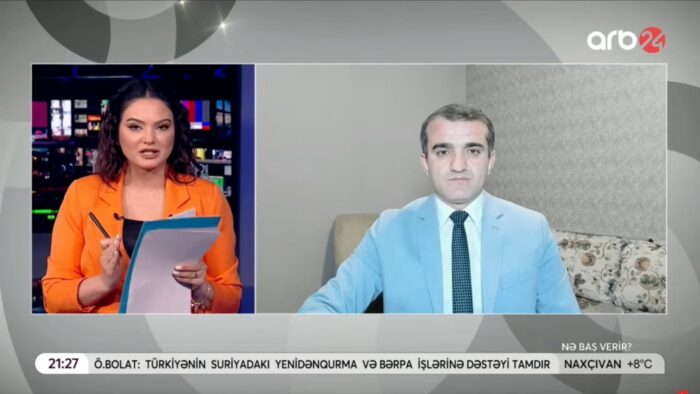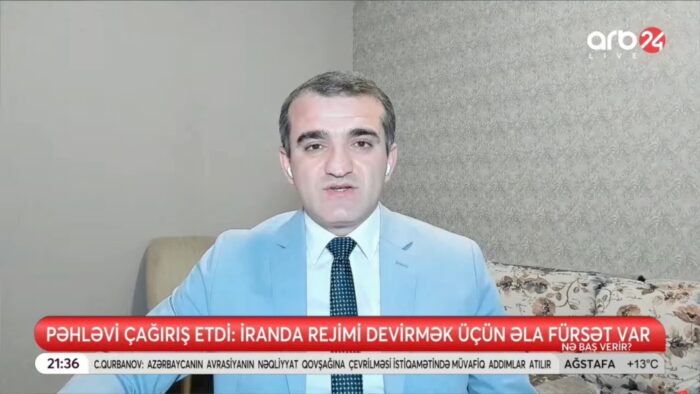The rising geopolitical tension in the Middle East has become one of the key topics on the global agenda. Relations between Iran and the United States have once again escalated in recent months. The potential impact of this process on regional countries, including Azerbaijan, is now a matter of serious discussion. Within this context, political commentator Ahmad Shahidov gave an interview to ARB24 TV’s “Ne Bash Verir” (“What’s Happening”) program, offering his insights on the issue.
Ahmad Shahidov stated that Iran’s steps related to its nuclear program, its support for armed groups in the region, and the pressure from Israel on the US are the main factors driving the escalation. According to him, the indirect diplomatic contacts held in April 2025 via Oman were intended to prevent the situation from spiraling out of control, but the positions of the two sides remain significantly far apart.
Ahmad Shahidov noted that Iran has moved its nuclear facilities underground, deployed new missiles to the Gulf, and mobilized its regional allies. The US and Israel, on the other hand, have openly declared that the military option remains on the table should diplomacy fail. This increases the likelihood of a large-scale conflict in the region.
In the event of open warfare, the immediate consequences could include a sharp rise in oil prices, disruption of international trade routes, humanitarian crises across the Middle East, and global diplomatic tensions. Military incidents in the Strait of Hormuz, in particular, could severely impact the world economy.
Ahmad Shahidov emphasized that although Azerbaijan is not at the center of this confrontation, it could still be indirectly affected. The country’s border with Iran, its transit routes via Nakhchivan, energy projects in the Caspian Sea, and the presence of ethnic Azerbaijanis in southern Iran all heighten potential risks. While rising oil prices may bring short-term economic gains, they also pose a long-term threat to stability.
Ahmad Shahidov concluded by stressing the importance of Azerbaijan maintaining a neutral stance, supporting regional stability, and continuing its balanced foreign policy in the face of such geopolitical tensions.




